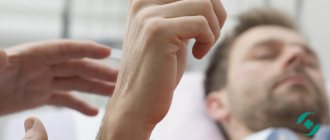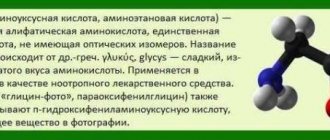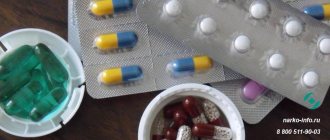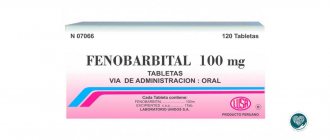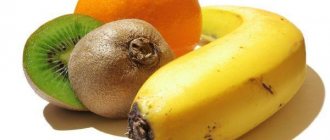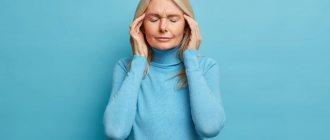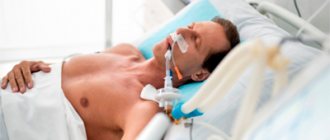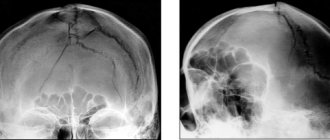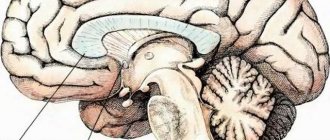Home>Articles>Dangerous consequences of simultaneous use of antidepressants and alcohol
quick menu (hide)
- Functioning of antidepressant drugs
- Alcohol while taking antidepressants
- SSRIs-antidepressants and alcohol
- Tricyclic antidepressants
- MAO inhibitors
- Alcohol with herbal antidepressants
- Antidepressants and alcohol: consequences of joint use
- Antidepressants and alcohol after completing a course of medication
Antidepressants and alcoholic drinks are incompatible things. If there is alcohol in the blood, the risk of side effects of antidepressants increases, which especially concerns the central nervous system. Let's look at why this happens.
What is the basis for the functioning of antidepressant drugs?
Basically, antidepressants are taken with the aim of increasing in the body the degree of production of hormones responsible for a favorable emotional background, normal mood, and an active mood.
After completing a course of taking such drugs, the patient begins to become interested in life, events and the people around him. The thoughts that his life is aimless and meaningless disappear.
The effect of taking such medications can be felt 14 days after starting to take the drugs, not earlier. The shortest duration of treatment is 3-4 months.
If the patient also has an alcohol addiction, then for the sake of his health and mental state he must give up alcohol for the entire duration of the course. Otherwise, dangerous side effects may occur, the effects of which will be enhanced by drinking alcohol.
Withdrawal syndrome
Features of antidepressants are a gradual cessation of the course by lowering the dosage; with an abrupt interruption, abstinence occurs. When using Zoloft after alcohol or together in order to enhance the result, physical withdrawal occurs, similar to drug withdrawal. Accompanied by the following symptoms:
- state of anxiety, increased irritability;
- headache, dizziness, tremors of extremities;
- nausea, vomiting;
- constipation.
Manifestations are long-lasting, the main period lasts up to 5 days, residual effects occur within 14-30 days, depending on the individual characteristics of the body.
Taking the drug together with ethanol has a depressing effect on the functioning of the main centers of the brain, leading to severe poisoning and unpredictable reactions from organs and systems. During the therapeutic course it is necessary to refrain from drinking alcoholic beverages. If your health worsens, you should seek specialized help at a drug treatment clinic and undergo a detoxification course.
SSRI antidepressants and alcohol: consequences
Serotonin is a signaling substance. Brain cells exchange serotonin molecules to transmit information. If a person is depressed, then he has an imbalance of serotonin.
SSRI antidepressants stabilize the patient's mood, easing the course of depression.
SSRI drugs contain the following active ingredients:
- Fluoxetine;
- Sertraline;
- Paroxetine;
- Citalopram;
- Escitalopram;
- Fluvoxamine;
- Venlafaxine;
- Duloxetine.
Alcoholic drinks should not be combined with selective serotonin reuptake inhibitors, as they increase the side effects of taking antidepressant medications. Also, such combinations can cause depressive psychosis, sexual disorders, and the appearance of hallucinations.
Difficult blood clotting, a sudden decrease or increase in blood pressure, and arrhythmia are possible. Secretory functions may deteriorate.
Complex autonomic disorders may appear.
Compatibility of Venlafaxine and alcohol
? Many antidepressants themselves are quite hepatotoxic. Their combination with alcohol puts a double burden on the liver. Some tranquilizers allow the consumption of alcohol in hangover-free doses. Velafaxine is a selective serotonin reuptake inhibitor. Because of this, drinking alcohol during treatment is unacceptable.
Both products help prolong the effect of intracerebral serotonin and promote the synthesis of dopamine. The substances have approximately the same effect on the body: they regulate brain activity and the functioning of the nervous system.
Alcohol initially has a stimulating effect on the central nervous system, but subsequently the stage of euphoria passes, and ethanol begins to have a depressant effect. The human body receives a double calming dose; consequences may appear that will be difficult to get rid of on your own.
After taking alcoholic beverages while being treated with tranquilizers, you need to seek medical help, even if symptoms have not appeared by that time. No doctor can predict the condition, so it is recommended to be under the supervision of doctors in this condition.
Tricyclic antidepressants
The structure of these drugs is similar: 3 connected ring-shaped molecules. This list includes drugs that contain the following active ingredients:
- Amitriptyline;
- Clomipramine;
- Imipramine;
- Tianeptine;
- Pipofezin.
Such drugs have increased toxicity, so drinking alcohol while taking them is prohibited. Tricyclics have many serious side effects, and the presence of alcohol in the blood increases the risk of their occurrence or enhances their effects.
Tricyclic drugs are not compatible with alcohol, other medications, or certain foods.
Possible adverse reactions include the following.
- Problems with the functioning of the digestive tract (constipation, urinary retention). State of drowsiness, rapid heartbeat. Confusion of thoughts and consciousness may be recorded.
- A person gains excess weight and his blood pressure drops.
- Loss of appetite, feeling of nausea.
- Ejaculation and erection become worse.
- Convulsive attacks occur.
- Psychopathological symptoms worsen.
- Hypotension is observed.
MAO inhibitors
MAO inhibitors are active substances that slow down the enzyme monoamine oxidase. These drugs include those that contain the following active ingredients: pirlindole and moclobemide.
When taking these inhibitors, you should not drink alcohol, otherwise serotonin and tyramine syndromes may occur. Taking antidepressants and alcohol lead to depression of the respiratory center and is therefore life-threatening. It is necessary to carefully follow the diet, as there are many drugs and foods that are incompatible with MAO inhibitors.
Possible adverse reactions include:
- accelerated production of adrenaline and increase in its level;
- neutralizing the effects of an antidepressant drug when drinking alcohol;
- hypertensive attacks;
- more frequent heartbeat.
When taking MAO inhibitors, non-alcoholic beer is also prohibited. Beer contains a lot of tyramine, a substance that increases adrenaline levels. When combined with an antidepressant drug, this can lead to terrifying consequences for a person.
It is forbidden to drink even half a glass of dry wine.
Is it possible to drink alcohol with herbal antidepressants?
Mild herbal antidepressant drugs are known to have a mild calming effect. If a specialist has prescribed a person to take a course with such drugs, then drinking alcoholic beverages in this situation is not prohibited. However, you need to drink it in small doses to avoid a hangover.
The minimum break between drinking alcohol should be 7 days.
Thus, you must carefully read the instructions for the medications prescribed by your doctor. If “Antidepressant” is indicated in the “Pharmacological group” section, this means that drinking alcohol is prohibited during the period.
Content:
- Features of the pharmacological effects of Zoloft
- Compatibility with alcoholic drinks
- Consequences of co-administration
- Symptoms of Zoloft overdose
- Withdrawal syndrome
Zoloft is a third generation antidepressant for the treatment of mental disorders under the trade name Sertraline. The instructions for the drug indicate that combining the drug and alcoholic beverages is not recommended, but some patients violate the ban, ignoring the increase in adverse reactions. Let's consider the potential risks of interaction between Zoloft and alcohol, the effect on the body, how dangerous and unpredictable the consequences are.
Antidepressants and alcohol: consequences of joint use
There is a popular belief that alcohol is an affordable and effective “antidepressant”, which is also sold without a prescription. But in reality, the euphoria felt after drinking alcohol passes very quickly.
At first, the person's mood improves, but soon he feels increased irritability, and then becomes aggressive. After sobering up occurs, problematic, tormenting situations that led to a depressive state come flooding back.
Often people try to drink alcoholic beverages every day in order to feel tolerable.
The consequences of this situation include the formation of a persistent dependence on alcohol, as well as the complete ineffectiveness of taking antidepressant medications.
Antidepressants and alcohol, which are not compatible, as confirmed by experts, make the treatment of depression useless. A person develops serious health problems that become impossible to control.
When mixing antidepressant drugs and alcohol, negative health consequences arise - the appearance of pathologies in the brain and internal organs. Adverse consequences include:
- vegetative-vascular dystonia;
- arterial hypertension;
- cirrhosis of the liver;
- increased depression.
Consequences of co-administration
The consequences of the compatibility of Zoloft and alcohol are manifested in the occurrence of severe intoxication, damage to the central and peripheral nervous systems. It is particularly dangerous for people with existing organic pathologies of the brain, epilepsy, liver and kidney failure, and those in suicidal depression.
With suicidal tendencies, the imbalance caused by the maximum release of hormones aggravates the pathology and can lead to suicide. The main identified consequences of interaction:
- inhibition of vital processes control functions;
- distortion of the effects of Zoloft;
- severe intoxication with organ damage;
- hypertensive crisis, arrhythmia;
- autonomic disorders;
- tremor, appearance of convulsive syndrome;
- the occurrence of mental disorders, the appearance of hallucinations;
- coma.
Difficult cases are accompanied by deep depression of consciousness and falling into a coma. A fatal outcome is possible if there is a history of pathologies of the cardiovascular system due to ventricular fibrillation - an extreme degree of instability of the heart rhythm.
Antidepressants and alcohol after completing a course of medication
Often, addiction to alcohol is a prerequisite for the onset of depression. Treatment can only be carried out when the body has been cleansed of ethyl alcohol and its metabolic products. For this purpose, a strong detoxification is carried out, during which enterosorbents are used and detoxification agents are administered intravenously.
Testing will help determine whether alcohol has been completely eliminated from the patient’s body. If the result is positive, then the person is prescribed treatment for depression with appropriate medications.
When the course of medication has come to an end or there is an objective need to stop taking it, then starting to drink alcohol is allowed only 14 days after the treatment course has completed. Otherwise, a person will experience serious disorders of both the nervous system and all internal organs.
According to patients who have undergone full treatment for depression, it is necessary to get rid of alcohol addiction in order to have a chance to live a healthier and happier life.
